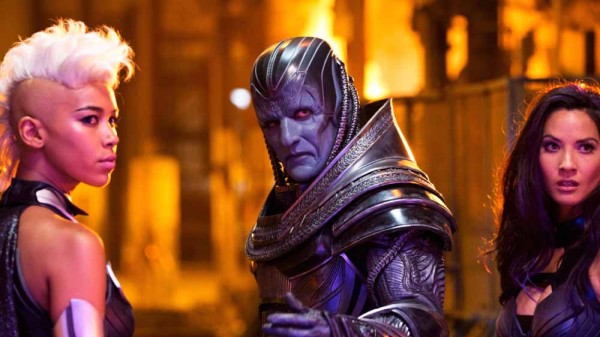WE ADVISE NOT READING THIS REVIEW UNTIL YOU’VE SEEN THE MOVIE AS IT CONTAINS PLOT SPOILERS.
2016 has arguably been one of the biggest years for comic-book movies yet.
As the industry has ballooned in popularity and therefore scrutiny, it’s also been a year when each of the major releases have attempted to set themselves out from the pack by trying their hand at deconstructing elements of the genre.
Batman v Superman and Captain America: Civil War, to varying successes, examined the collateral damage created by these heroes by applying them to a ‘real world’ scenario of scrutiny and controversy, while Fox’s own Deadpool more or less laughed in the face of the genre, racking up the highest gross for any X-Men movie despite sporting an R rating and a lack of X-Men banding.
None of this movies were wholly successful in their attempts, though some certainly came closer than others (sorry, BVS), but it’s worth noting that all three superhero movies so far this year have genuinely tried to break down the genre in order to put a new, fresh spin on it.
X-Men: Apocalypse, on the other hand, brings very little new to the table, and that’s perhaps what hurts it the most.
Apocalypse isn’t an actively bad movie, and there’s plenty to recommend here, from solid character arcs to near-uniformly solid acting (the key word here being ‘near’). Yet it’s hamstrung by its constant fidelity to the traditional superhero template, and as such it ends up riddled with depressingly familiar flaws; a poor villain, an overstuffed and badly handled cast, and intermittent pacing, all issues that have been overcome by one superhero movie or another recently.
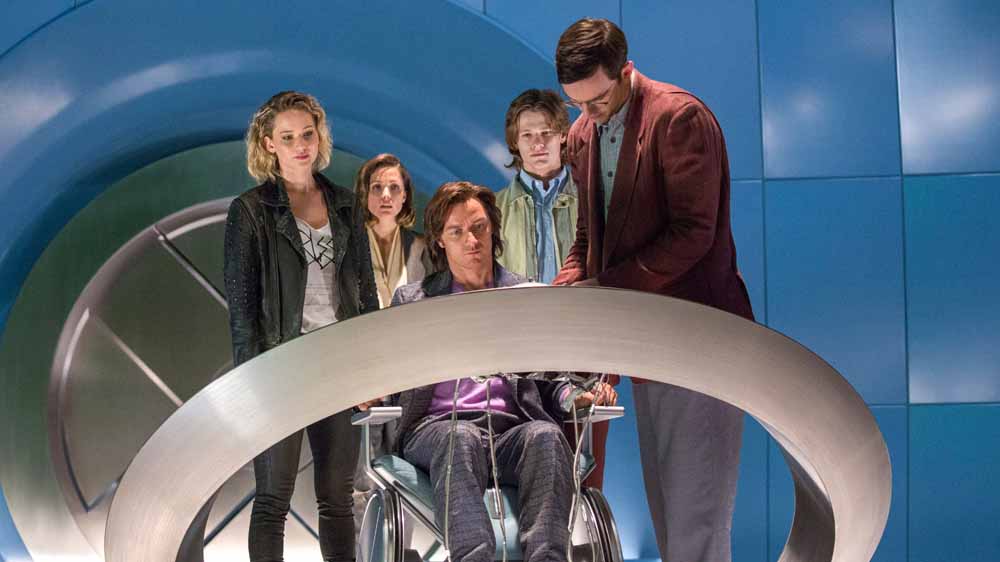
It’s the villain here that perhaps comes as the biggest, most surprising disappointment. The X-Men franchise has been so obsessively focused on Magneto as the main villain that another powerhouse foe seemed like tonic. And there’s real, thematic merit in a bad guy who represents an elevated, coldly aloof perspective on the conflicts of prejudice and fear that have been the bread and butter of this franchise.
To Apocalypse’s credit, it really conveys the latter idea in one particular scene, in which Apocalypse launches all of the Earth’s missiles into orbit, starving the planet of the fuel for the Cold War. It’s a terrifically evocative scene with a handful of powerful visual images that construe impressive examples of visual storytelling, making the conflicts and foes of previous movies feel downright petty and insignificant in comparison to a villain who can change the geo-political landscape irrevocably without breaking a sweat.
In that moment, there’s a genuine sense here that Bryan Singer has finally dipped into the considerable rogues gallery of the comics, successfully translating a foe to screen who breathes new life into the well-worn themes of this franchise.
Unfortunately, that scene is essentially the limit of this movie’s ambitions surrounding Apocalypse. For the rest of the film, Apocalypse is a complete mess of a villain, seemingly created without a second thought of any of the ‘whys’ regarding his character.
Why does Apocalypse see the world as worthy of cleansing? Why does he need four horsemen to do his bidding, and why does there need to be four? What actually is his power set?
None of these important questions matter to Apocalypse, with the answers either insubstantial or non-existent, so he ends up as a deeply hollow villain – his words about false gods sound impressive on a surface level, but they’re essentially vapid, with no basis in substantial characterisation or motivation to give them weight.
Apocalypse should be a hugely imposing foe with a palpable sense of history behind him, but Apocalypse’s refusal to flesh out the villain beyond a description written on the back of a napkin and inability to ever really factor him in a meaningful level into any of the character arcs going on elsewhere means that he’s a whole load of sound and fury, and very little else; a disappointment who fizzles out well before the movie actually tries to lean on him as its main focus.

There’s been a tendency of this prequel trilogy to inflate the cast list each time by adding more and more mutants from the comics to the roster with very few exits, and while Days of Future Past managed to avoid cast bloat by placing the bit-parts in action-heavy roles that maximises their uniqueness, Apocalypse feels the weight of its gargantuan ensemble a great deal more.
There’s a huge amount of character material within this movie, yet it’s so thinly spread between characters with a need to service most of them that most of the character arcs here for people like Cyclops and Jean Grey feel incomplete by the time they’re forced to factor into the conclusion.
Some characters feel surplus to requirements, like Mystique, who feels thrown into the mix to allow a clearly bored Jennifer Lawrence a spot in the marketing, and some barely register at all such as Psylocke or Angel due to a strange implicit assumption that joining up for Apocalypse is sufficient motivation and characterisation, because that’s literally all they get aside from a couple of brief action beats.
It’s the third act that bears the brunt of this thinly spread mess of miniature one-scene character arcs, because Apocalypse really tries to bring everyone’s turmoil and conflicts and make them dovetail with one another to represent the union of the X-Men, a coherent joining together of previously disparate figures.
Unfortunately, scattershot execution means that the character arcs don’t elegantly tie together, instead becoming tangled and confused as the emotional focus of the final fight constantly shifts to the point where there’s no actual emotional centre to it all, meaning that Apocalypse’s defeat only compounds the disparate, messy feeling of before as these vastly different conflicts all clash for space.
There are some moments that may have been genuinely memorable in a less overstuffed movie, such as the visually impressive unleashing of Jean Grey’s Phoenix powers and Storm’s turning away from Apocalypse to protect her hero, but all of these big moments are thrown into mix at more or less the same time, none of them really getting adequate space to be properly explored.
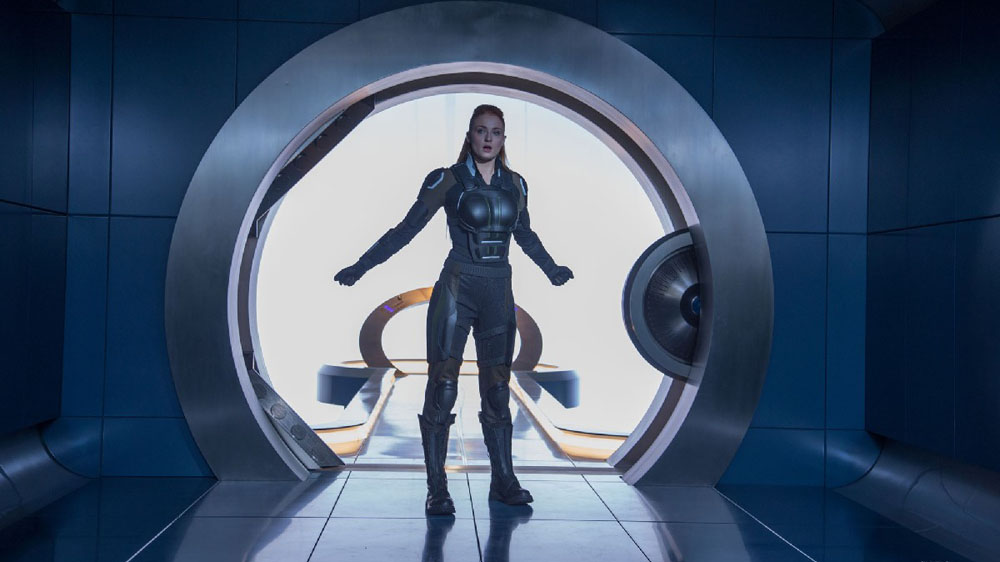
There’s some solid character development in this movie, but Apocalypse is never able to latch onto a thematic idea to really link everything together – the vague theme of fear crops up here and there, but it’s not a strong or consistent enough through-line to stop Apocalypse constantly getting in its own way, and nowhere is that more visible than the final fight.
And then there’s the pacing, a problem that’s hit even the great X-Men movies. There’s some level of momentum within the first act as several character stories bubble along nicely, and even if there’s a sense that the movie is waiting to take off for a good hour, Apocalypse lays the groundwork for what’s to come in satisfying, methodical fashion with character stories such as Xavier’s and Magneto’s that neatly parallel one another.
For a while, Apocalypse builds up a nicely portentous sense of dread, a clear feeling that everything is at the edge of a cliff, waiting for a push, and while the introductions do become wearing as they keep on coming, that expected push keeps the film ticking away for a decent while. Yet when this major ramping up of stakes comes with Apocalypse’s nuclear launch and the assault on the X-Mansion, Apocalypse vanishes down a narrative cul-de-sac at Alkali Lake.
The Stryker subplot is frustratingly superfluous, particularly given how it adds nothing thematically to the movie other than reasserting the idea that humans are frightened of mutants for about the twelfth time, and doesn’t really progress anyone’s character arc, as Apocalypse’s plan goes into a holding pattern so his Four Horseman can strike poses on a rock near Cairo while he lectures Charles.
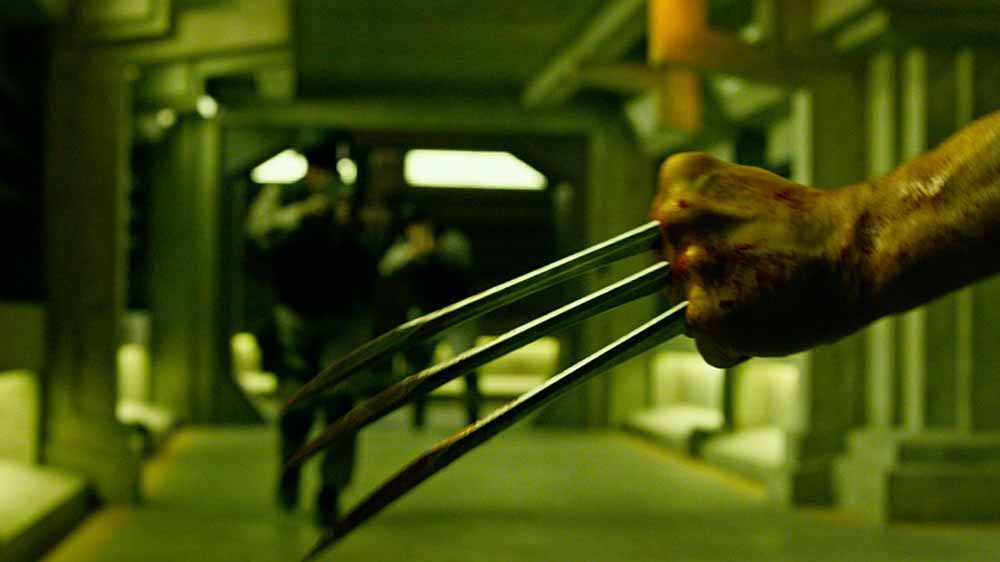
The Wolverine cameo is fun, and surprisingly brutal given the 12A rating (a taster for the solo movie next year whose confirmed R rating presumably points towards some properly bloody hack-and-slash for Wolverine), but it collapses when it becomes the entire reason for the subplot’s existence.
It’s a pretty accurate encapsulation of the way in which this franchise continually bends over backwards to add the lucrative Wolverine in regardless of artistic value, heavily stunting Apocalypse’s sprint to the finish in a way that means the movie stumbles into the third act without having really laid the complete groundwork for the conclusion.
It’s perhaps because of this that the third act feels so weightless and inconsequential at times – there’s an absurd level of destruction as cities are pulled apart and millions are killed, but Apocalypse fails to imbue any meaning into this and barely stops to examine the humanity behind it all.
Instead of noting the widespread backlash to enormous collateral damage in previous superhero movies and thus presenting a different and original way to convey a worldwide threat, Apocalypse takes that precedent and doubles down on it, yet never seems to really care about all the destruction that’s occurring on screen; it’s just there for the visuals, and very little else of substance.
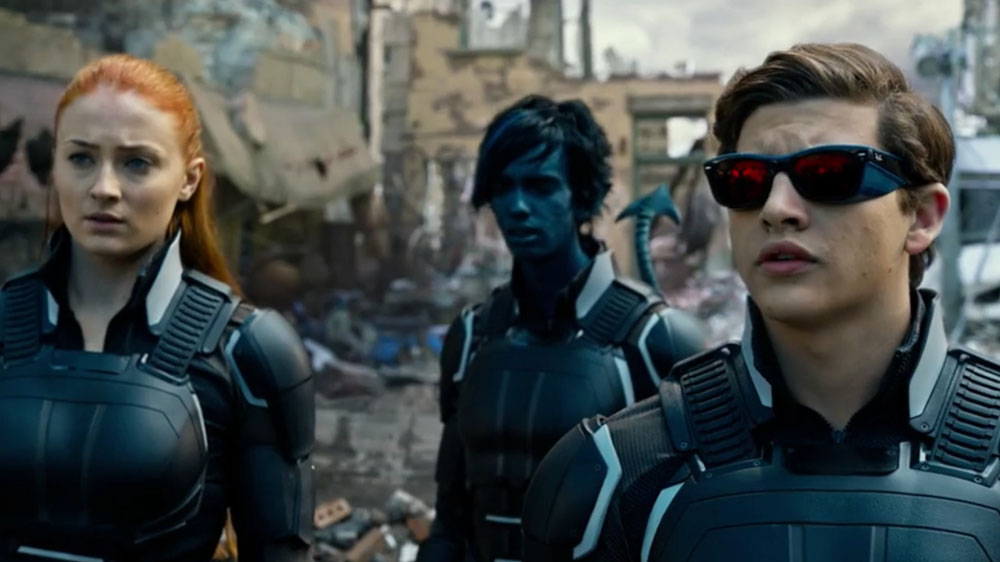
With all those criticisms in mind, it’s worth noting that Apocalypse comes up trumps in other areas. The Xavier/Magneto dichotomy, which admittedly is well-trodden ground after six movies focusing on it, is continuously intriguing, with Apocalypse creating a fresh and engaging dynamic between the two as they head in opposite directions; Xavier towards the future with his new school and ambitions for expansion, and Magneto as he becomes pulled back into the senseless tragedy that’s defined his life.
Magneto’s arc, in particular, is frequently compelling in how it really digs into the way in which atrocity has defined his existence – and while some of the material here is frustratingly clichéd (his family are badly handled, created to be regressively fridged), Michael Fassbender’s powerhouse performance and the raw, primal rage and anger that he portrays so convincingly ensures that Erik’s latest tragedy has a genuine thematic weight to it, pushing him into a place where it’s actually believable to have Magneto scooped up by Apocalypse for his Horseman.
Apocalypse loses sight of this parallel towards the end with Xavier’s insubstantial arc coming to a muddled conclusion of a vague apology for actions entirely unaddressed in the previous movie and Magneto’s destruction of millions left entirely unpunished, but for the most part there’s a genuine feeling of new ground being covered here, enhancing our understanding of their complex dynamic while rising above a simple rehash and repackaging of their ideologies.
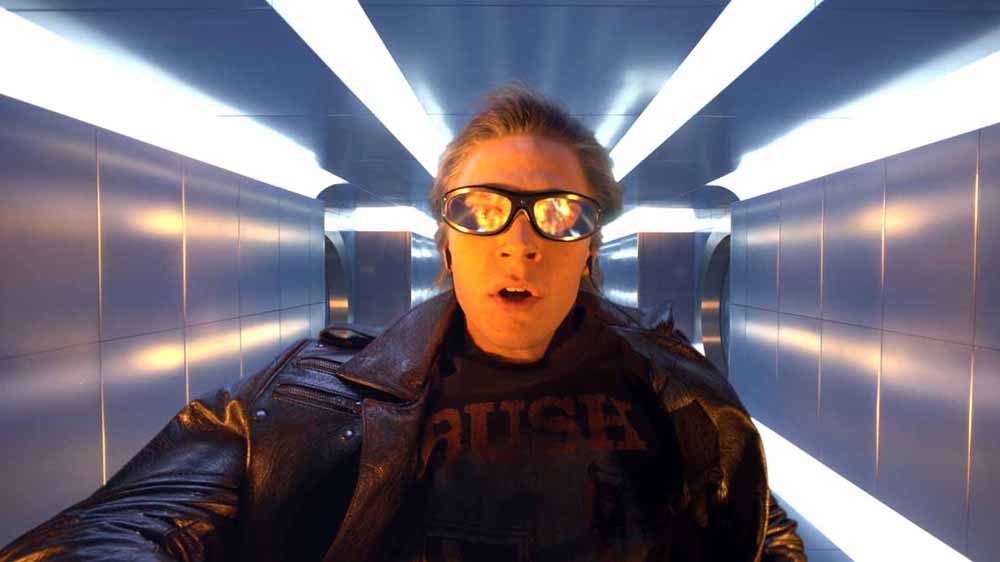
There’s other moments of inspiration throughout, most pertinently within the Quicksilver scene. Sure, it’s a bit of a rehash and a bare-faced attempt to replicate the magic of the first one, but the sense of unabashed fun and joy present within the filmmaking at exploring his powers manages to make this scene a real bright spot within the movie, packing in heart, humour and a real summation of Quicksilver’s unusual brand of heroism within a compact four-minute scene, complete with 80s soundtrack.
And while their development is somewhat lacking, Apocalypse does introduce several engaging characters, from the guarded and tentative Jean Grey to Nightcrawler, who plays the consistently amusing comic-relief part here – so if the next movie will focus on this younger generation, with a stronger handle on development there’s certainly reason for optimism.
X-Men: Apocalypse is a film with critical flaws at its centre that would capsize some movies, but it’s also one that, at times, conveys raw emotion, grandeur, humour and brutality like very few of its peers can. It’s frustrating, however, because this feels like a movie that really does have ambitions of something greater, of breaking the mould that its predecessors have strictly adhered to.
Yet its attempts are in vain, and this is, at its core, another overstuffed team-up movie with muddled character development and a bad villain – flawed in a very traditional sense, as opposed to the fascinating failure of Batman v Superman.
There’s plenty to recommend, but it’s disappointing to see this franchise take a step back into formula after an inventive and freewheeling predecessor, constituting a clear step back for a series that’s in danger of being made obsolete by both its Marvel Studios rivals and its own spin-off.
Let’s just hope there’s a real shake-up for the next one…
![]()
Released in UK cinemas on May 2016.
Pre-order X-Men: Apocalypse on Amazon here.
What did you think of the movie? Let us know below…

